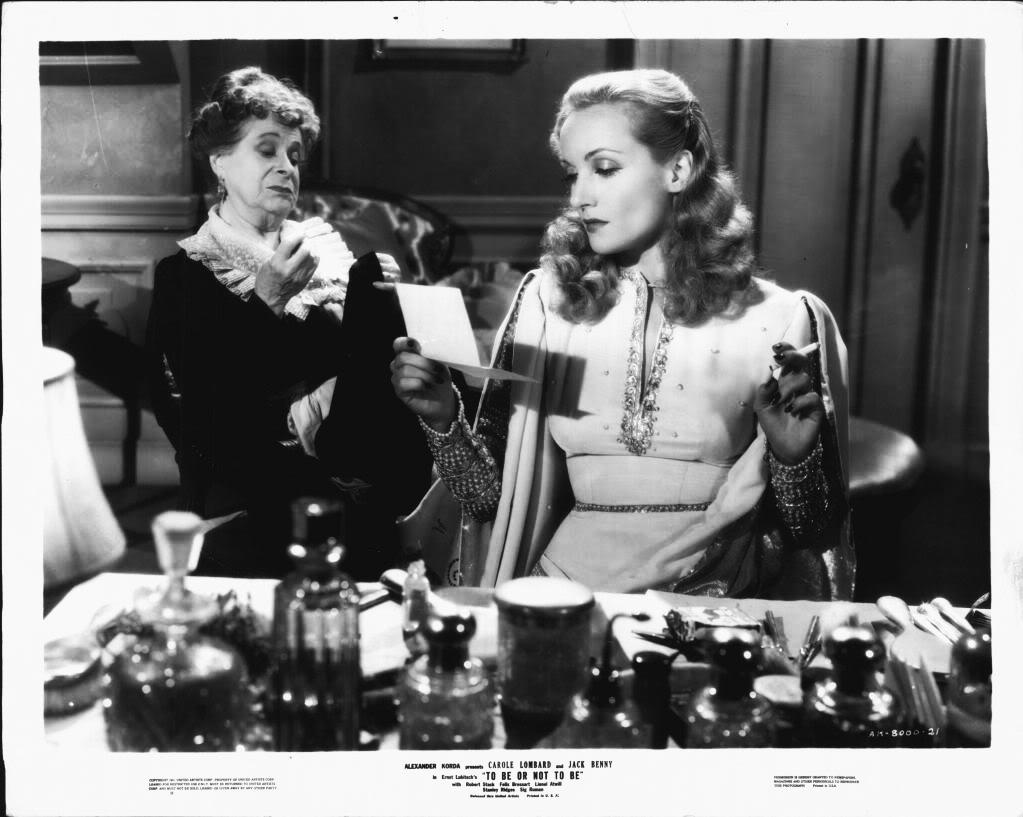Imagine being transported back in time, the year is 1939 and Nazi Germany has invaded Poland. With such panic going about the town, no one would consider this to be a laughing matter, but director Ernest Lubitsch has made it so.
In his hit 1942 film, “To Be or Not to Be,” Lubitsch helps actors Carole Lombard and Jack Benny create the humor that helps their characters, Maria and Josef Tura dupe the occupying Nazi troops with the help of their theater group.
On Friday, the Sonoma Film Institute featured the film at 7 p.m. Despite the low student turnout, many Rohnert Park citizens and professors still seemed to enjoy the film as the room would fill with laughter on occasion. The film is from 1942 and consequently produced in black and white.
The film starts of in the Polish town of Warsaw, where a troupe of actors are getting ready for their new play based on Hitler and the Nazis. The cast is then plagued by the fact they cannot perform on opening night because they do not feel it would be appropriate, so instead they perform Shakespeare’s “Hamlet.”
It is during Benny’s character’s performance that one begins to realize why the play is titled “To Be or Not to Be,” as he begins his speech portraying “Hamlet.”
In the beginning of the film, it is hard to pay attention and follow along due to the fact that one is trying to piece the characters’ name to the actors’ faces.
The film also starts off dull and lacks the comedic touch that makes the film a true comedy.
It starts off with the dilemma between characters Maria and Josef, a couple who belong to the theatre group. Their fame tends to get in the way of the relationship, seeing as Josef is very into himself and constantly refers to himself as a great actor.
Due to the rip in the relationship, Maria becomes intrigued by an attractive young pilot, Lt. Stanislav Sobinski. She advises him to come to the theatre and leave whenever her husband Josef starts the famous speech in Hamlet, “To be or not to be.”
It is only in the scenes in which Sobinski walks out of Josef’s speech that makes the first half of the movie funny, due to Josef’s appalled reaction.
When the Nazis actually invade Poland, including Warsaw, where the movie takes place, the movie turns to a more serious note, there is not much comedy happening as they are being invaded and begin plotting how to dupe the troops and escape elsewhere.
Once the characters begin to trick the Nazi troops and disguise themselves, the movie becomes funny again as their plans bounce back-and-forth between failure and success.
Lubitsch was much ahead of his time in directing a comedic movie about serious events that had happened three years prior, since WWII was in 1939. Despite how serious the subject is, Lubitsch does a good job of beginning and ending the film on a lighthearted note.
Other than the few funny moments, the movie can be a little dry, seeing as comedic films have taken somewhat of a new direction since 1942, but it can still be worth watching, especially if one is a fan of classic films.



































